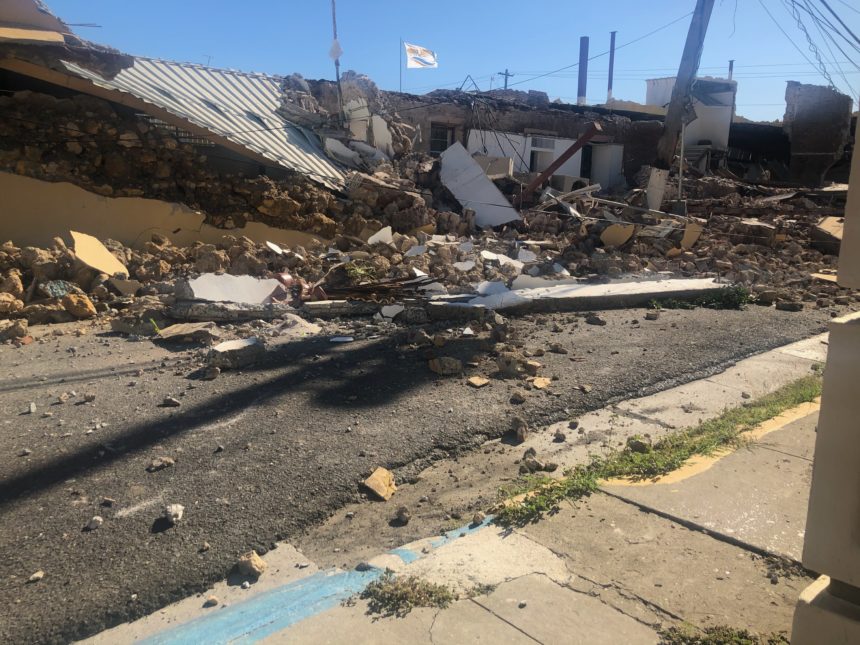UTEP professor’s trip home lands her near epicenter of Puerto Rico earthquakes

GUAYANILLA, Puerto Rico -- El Pasoan Ivonne Santiago landed on stable ground in Puerto Rico on Sunday for a family visit and woke up Monday in a real-life nightmare that began to tear apart her home.
"The sounds were incredible: things falling off the walls and glass crashing everywhere," she said of the earthquakes that struck the island. "I could hear the roar from the ground moving and the noise from the buildings around us falling. It feels like the world is falling apart."
Santiago, an engineering professor at UTEP, was an eyewitness to series of quakes that may have caused $3.1 billion in damages and destroyed hundreds of years of historic buildings. The quakes have left Santiago's home town of Guayanilla, without electricity and water, and waiting for a disaster declaration from FEMA for aid.
"I had already felt the (magnitude 5.8) the day before, but there was just no comparison," Santiago said Tuesday just hours after a 6.4-magnitude earthquake hit. "It's really hard to describe the amount of fear."
The larger magnitude 6.4 quake came a day after and has left the many in a state of panic.
"You have no peace in a situation like this," Santiago said as she stood on her childhood home's porch surrounded by darkness. "The aftershocks continue and you don't know how big it's going to be."
Santiago, who has used high-dollar equipment as an engineer, has resorted to low-tech techniques to help her sleep during the long powerless nights.
"I sleep with a glass of water next to me," she said with a light chuckle. "Every time I feel something, I look at the glass so I know if it's a tremor and not my heart."
The earthquakes have left the island dark after the power was knocked out.
A few months ago, Santiago and a group of UTEP students built a portable charging station to be sent to Puerto Rico ahead of the next hurricane season. The station charged phones an laptops to allow people to communicate with the families. It even has a fridge to keep insulin cool.
That station is now needed in Puerto Rico immediately.
The charging station is still in El Paso pending funding to ship to Puerto Rico. If you would like to donate to the shipping fund, you can write a check to the Department of Civil Engineering and the Service Learning Center.